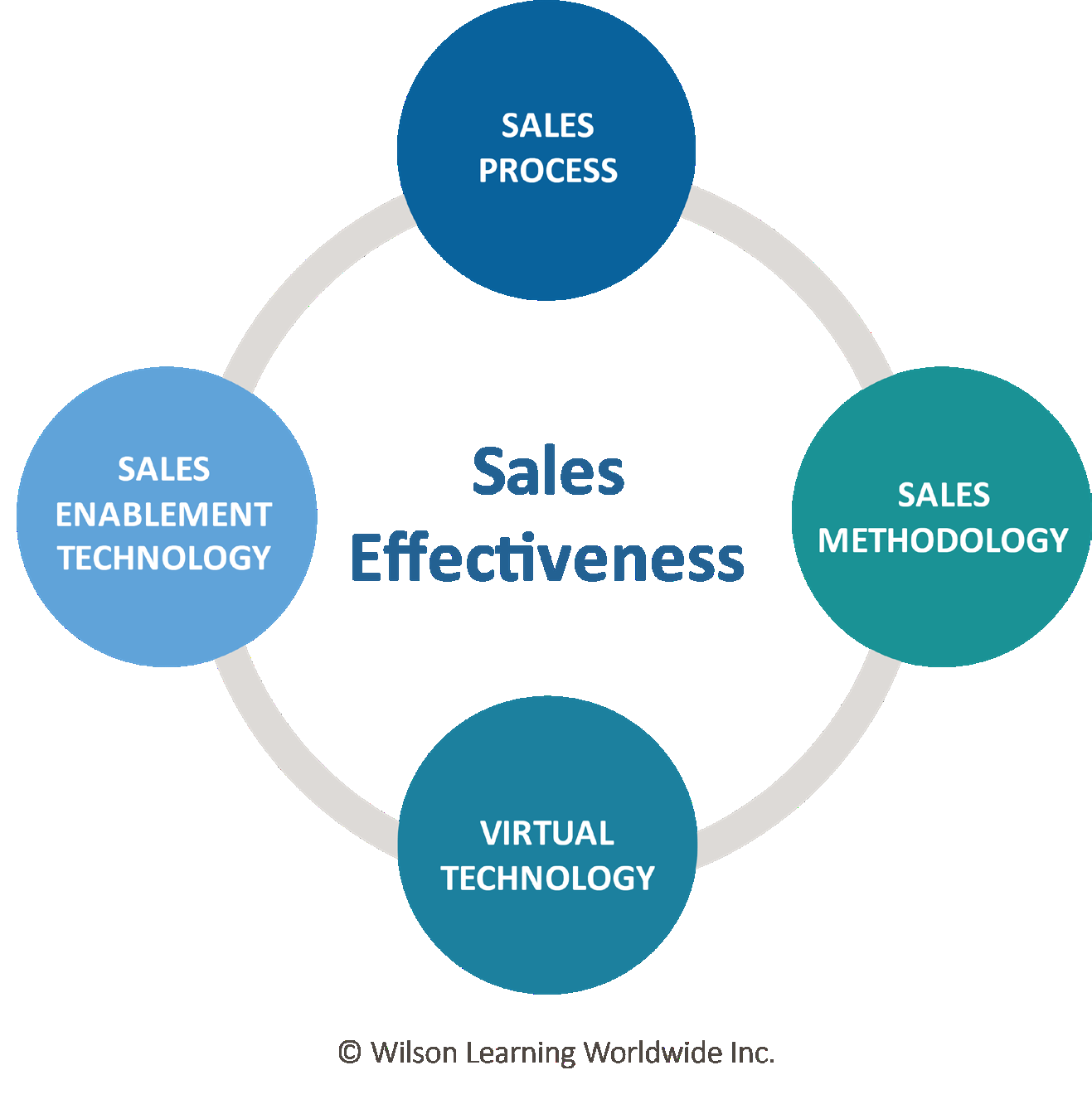Debunking a Few Myths About Virtual Selling

COVID-19 and current market trends are driving our customers to change their sales approach. Salespeople once accustomed to selling in person are now confronted with selling via email, telephone, digital platforms, and social media. Salespeople are struggling to access and engage customers in this new environment.
As a result, there has been an enormous amount of attention brought to anything that has the word virtual associated with it: virtual meetings, virtual learning, virtual teams, and, of course, virtual selling. The reasons are obvious, perfectly understandable, and largely appropriate.
As with anything getting this much attention, there is a lot of good that comes from it. Unfortunately, along with the good has come some misinterpretation of the challenges for sales and confusion about how to respond to those challenges.
For example, we have seen a number of providers hastily prepare and market programs (or perhaps the other way around—market and then prepare programs) as the answer. We are also getting inquiries asking for help with virtual selling or, in many cases, asking for our “Virtual Selling” program. The implied assumption behind this request seems to be that the solution to the challenges sales organizations are experiencing is a training program focused on virtual selling skills.
Although some specific virtual skills training is almost certainly an important component of meeting the current challenges, a more thoughtful, systemic approach to sales effectiveness is required to move the needle on sales performance.
While the need is clearly urgent, there is plenty of time to do it right and ensure any training offered integrates well with the other key elements of overall sales effectiveness. This should not require a lengthy delay or otherwise encumber a timely response, and it will avoid a “one-off” feel to your response while supporting full adoption of new skills that will produce improved results.
A Few Common Myths
Virtual selling is completely new and different
Although selling virtually is different, it’s not that different. The degree of difference from what has been good practice for your business until now varies widely based on a number of factors (what business you are in, what you sell and who you sell to, the shape your sales process is in, etc.).
It’s all about getting good at using virtual meeting platforms.
In fact, there are a variety of digital technologies that should be part of your virtual selling repertoire, but technical proficiency alone will not make the sale.
You can’t build the same level of high-quality, trusting relationships virtually that you have built in person.
Actually, you can, but it takes a more thoughtful, deliberate, and planned approach.
Let’s clear up some of the confusion about what’s new and what’s not, and identify the best way to respond to the need.
What Are the Challenges for Sales Organizations?
We’ve heard the following challenges from our customers in recent weeks:
- Our salespeople are “behind the curve” on selling virtually. While we were already moving in the direction of selling virtually, we were not ready for the sudden and complete shift to virtual selling.
- The current crisis has exposed weaknesses in our sales process, sales methodology, or the adaptation of both to selling virtually.
- There is a lack of clarity or agreement among our key stakeholders about where gaps exist, as well as what is the same and what is different when selling virtually.
- We are trying to avoid a “knee jerk” response (i.e., a program called “Virtual Selling”) in order to respond in a way that actually improves sales performance.
- Our salespeople rely heavily on remote selling tools to communicate with customers, yet they’re not proficient in using these tools.
The Reality Behind These Challenges
Let’s take a closer look at the weaknesses that have been illuminated by this sudden shift to selling virtually.

Sales Process
The organization may not have a clearly articulated sales process or may not consistently use the sales process already in place. The sales process may require updates based on how customers buy today.
Sales Methodology
Sales professionals may not be demonstrating effective use of the skills and behaviors that are necessary to execute each stage of the sales process, especially when selling virtually. Any existing weaknesses have been illuminated and are showstoppers when selling virtually.
Virtual Technology
The salesforce may lack the knowledge, skills, and techniques necessary to effectively use virtual meeting platform functionality and features, as well as the broader mix of tools necessary for virtual selling (e.g., multiple platforms, social media, file sharing, email links, etc.).
Sales Enablement Technology
The CRM and other sales enablement technology are not being used to support and reinforce effective execution of the sales process and methodology (e.g., lack of integration, no adaptation to current reality, or poor adoption by sales and sales management).
Not the Time for a New Sales Methodology
Wilson Learning’s response to these challenges encourages reinforcing and adapting counselor selling skills for selling virtually. Why are these skills so crucial in the new reality?
- The challenge of quickly establishing credibility and building trust is heightened at a distance. Pre-call planning for virtual meetings is essential at all stages of your sales process.
- Uncovering business problems and finding opportunities to help customers requires discipline and structure in a virtual environment. Thoughtful, well-planned, and efficient identification of customers’ needs, motives, and preferences become the foundation of effective solutions.
- Presenting solutions at a distance requires delivering a clear and compelling message. Focusing on solutions and recommendations aligned to the discovery paves the way to success in a virtual sale.
- Active follow-up via phone, email, or text message ensures continued sales, repeat business, and referrals.
In fact, if you already have an embedded sales methodology, introducing new core selling skills to your sales professionals may send the wrong message:
- It reinforces the misconception salespeople may have that selling virtually is “completely different” and that they are not already prepared. Don’t give them an excuse.
- It dilutes the advantage of the common language for selling and coaching that the organization already benefits from.
- Implementing a new sales methodology is both an additional and an unnecessary expense.
- It is inefficient and requires time for both salespeople and coaches to adjust to and adopt the new skills.
Leveraging an existing sales methodology helps organizations:
- Capitalize on progress already made in improving sales effectiveness and add to the ROI already achieved.
- Reinforce a common language, rather than introduce a conflicting terminology that differs from what salespeople already know and use.
- Provide an efficient, economical approach that directly connects the methodology to virtual selling to provide an immediate and significant payoff.
- Strengthen adoption and application of your preferred sales methodology and its application to a virtual selling environment.
Putting It All Together
Selling virtually brings its own set of unique new challenges. It also requires a heightened level of attention, discipline, and excellence to the use of all of the selling skills that have been part of selling effectively on site. There is less margin for error and no tolerance for winging it. The same heightened requirement applies to using an updated sales process to ensure that you are adding value at each step of your customer’s buying process.
In short, salespeople are required to be better at what they may already have been pretty good at and consistently so. It is well worth taking a half step back from launching a new virtual selling program in order to reinforce and carry forward the best of what you already have in place. This will ensure that the new virtual skills your salespeople are learning are anchored on the framework of your core sales methodology and a reapplied, if not reimagined, sales process.
To learn more, contact Wilson Learning at 1.800.328.7937 or complete the online form.







 Please complete this form to download Debunking a Few Myths About Virtual Selling.
Please complete this form to download Debunking a Few Myths About Virtual Selling.



